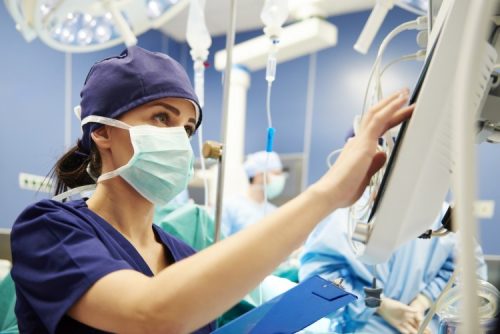
Role of Technology in High-Demand Nursing Specialties
Role of Technology in High-Demand Nursing Specialties https://kupplin.com/wp-content/uploads/2023/07/Nurses-work-to-incorporate-technological-advancements-500x334-1.jpg 500 334 kupplinadmin kupplinadmin https://secure.gravatar.com/avatar/6eec4427dd031e16c8da4c63019a7497?s=96&d=mm&r=g- kupplinadmin
- no comments
Nursing is a highly demanding profession that requires a great deal of dedication, expertise, and skill. With technological advancements, high-demand nursing specialties have significantly transformed how healthcare is delivered. In this blog, we will explore the role of technology in high-demand nursing specialties.
Introduction to High-Demand Nursing Specialties
High-demand nursing specialties are areas where there is a need for more trained professionals. These specialties include emergency, critical, neonatal, and oncology care. These areas require highly skilled professionals who are well-equipped to handle complex medical conditions and provide the best possible care to patients.
Role of Technology in High-Demand Nursing Specialties
Technology has transformed the healthcare industry, and high-demand nursing specialties have not been left behind. Here are some of the ways technology is playing a significant role in these areas of nursing:
Electronic Health Records (EHR)
EHRs have revolutionized how healthcare providers store, access, and share patient information. In high-demand nursing specialties, EHRs have helped to improve patient safety, reduce medical errors, and enhance the quality of care. EHRs allow nurses to access patients’ medical history, medications, allergies, and lab results, among other essential data, all in one place.
Telehealth
Telehealth has made it possible for nurses to provide care to patients remotely. This technology has been especially critical during the COVID-19 pandemic, where social distancing measures have made it challenging to provide in-person care. Telehealth has made it possible for high-demand nursing specialties to continue giving care while reducing the risk of exposure to the virus.
Patient Monitoring Systems
Patient monitoring systems have helped to enhance patient safety and improve outcomes in high-demand nursing specialties. These systems allow nurses to monitor vital signs in real-time, such as blood pressure, heart rate, and respiratory rate. This technology will enable nurses to identify potential problems early and take appropriate action before they become life-threatening.
Electronic Medication Administration Records (eMAR)
eMARs have helped to improve medication safety in high-demand nursing specialties. These systems automate medication administration processes, reducing the risk of medication errors. eMARs provide nurses real-time medication information, including dosages, frequency, and potential side effects. This technology has also helped to streamline medication administration processes, saving nurses valuable time.
Wearable Technology
Wearable technology has made it possible for nurses to monitor patients remotely. These devices can track vital signs, such as heart and respiratory rates, and provide real-time data to healthcare providers. This technology has benefited high-demand nursing specialties, where patients require constant monitoring.
Conclusion
Technology has had a significant impact on high-demand nursing specialties. It has helped to improve patient safety, enhance the quality of care, and reduce medical errors. As technology advances, we will see even more transformative changes in the healthcare industry. High-demand nursing specialties will continue to benefit from these advancements, ensuring patients receive the best possible care.
- Posted In:
- Uncategorized

Leave a Reply